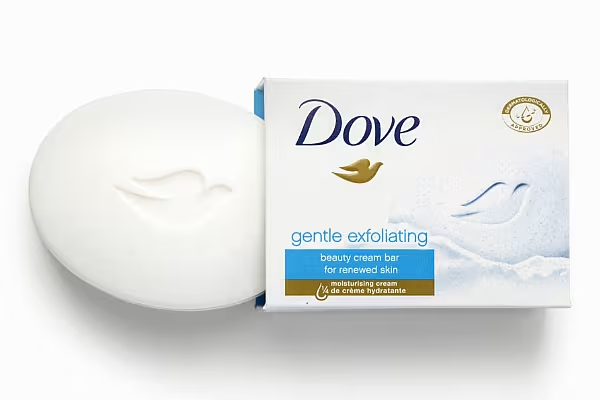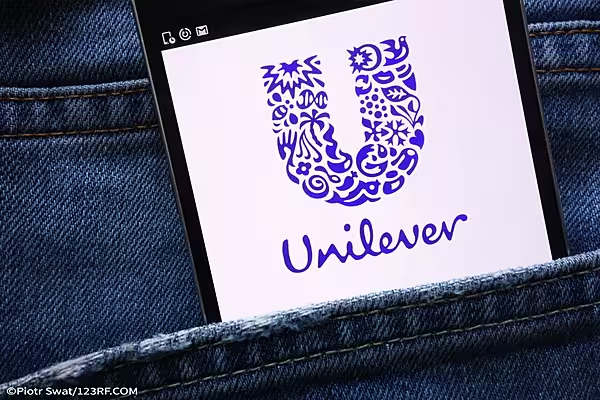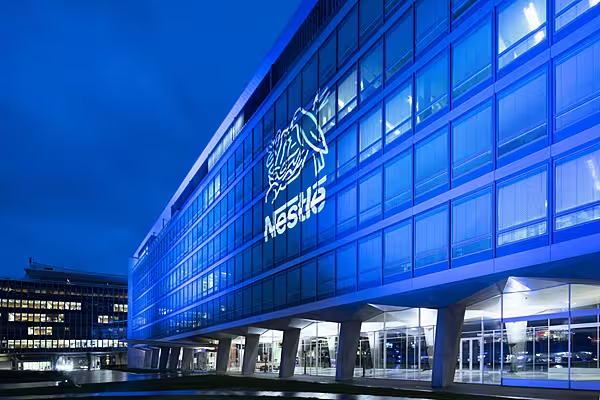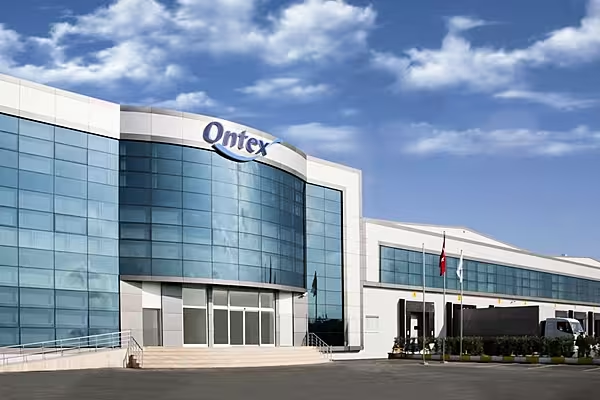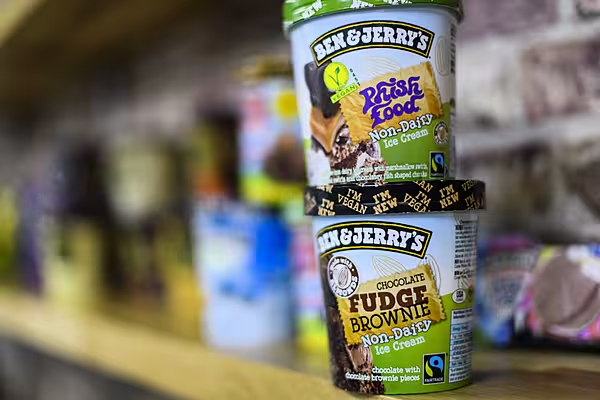Unilever shares fell after saying it will get off to a slow start in 2017, casting gloom over the European consumer-staples industry as the sector’s earnings season kicks off.
Fourth-quarter underlying sales rose 2.2 percent, the maker of Dove soap said in a statement, the worst result in two years and below the 2.6 percent gain seen by analysts. Growth at the company’s personal-care business, its biggest unit, also hit a two-year low, as shipments declined for the second straight quarter. The shares lost as much as 4.3 percent in Amsterdam, the biggest drop in seven months.
Worsening conditions in three key markets -- India, Brazil and China -- made the year-end particularly challenging for Unilever, as consumers balked at paying higher prices for its Dove soaps, Lipton teas and Tresemme shampoos. Deflation across Europe also contributed to a falloff in sales there. The maker of Ben & Jerry’s ice cream said performance should improve as the year progresses, but the disappointing results don’t bode well for rivals such as Nestle SA, Danone and L’Oreal SA, whose stocks all declined in early trading Thursday.
“It’s a bit hard to put a positive spin on these numbers,” Martin Deboo, an analyst at Jefferies, said by phone. “There’s a malaise in Europe from a combination of deflation and no volume growth, hyper-inflationary pricing in Latin America that’s causing the consumer to wilt, and sophisticated online competitors in China.”
Emerging Markets
Emerging markets have gone from a boon to a burden for Unilever, which generates about 60 percent of its revenue in developing regions. Brazil is mired in its worst recession on record, while India has suffered from the removal of high-denomination notes from circulation, which caused “significant additional headwinds,” the company said. In China, fiercer competition from home-grown brands hurt sales of its laundry detergents.
“This is a world that is challenged in a broader sense,” Chief Executive Officer Paul Polman said in an interview with Bloomberg Television. “De-monitization has severely affected the market in India, and we have a very big business in India. Likewise Brazil is going through a very tough time.”
Unilever shares were down 4 percent to 37.78 euros at 10:32 a.m. in Amsterdam, after falling as much as 4.3 percent, the biggest intraday drop since June 24. Nestle declined 1 percent in Zurich, while Danone and L’Oreal both fell less than 1 percent in Paris.
One bright spot for Unilever was that full-year operating margins widened 0.5 percentage points to 15.3 percent. In November, the company doubled its forecast for margin improvement to between 0.4 percentage points and 0.8 percentage points by 2019. It plans to reduce expenses by more than 1 billion euros over that period by dialing back on media spending, the use of outside consultants and international travel. Consumer-product makers of all stripes have sought to cut costs in recent years as growth becomes harder to achieve.
“We don’t expect the fourth quarter to do much to lift the gloom” hanging over European consumer-staples makers, Deboo said in a note.
News by Bloomberg, edited by ESM. Click subscribe to sign up to ESM: The European Supermarket Magazine.
